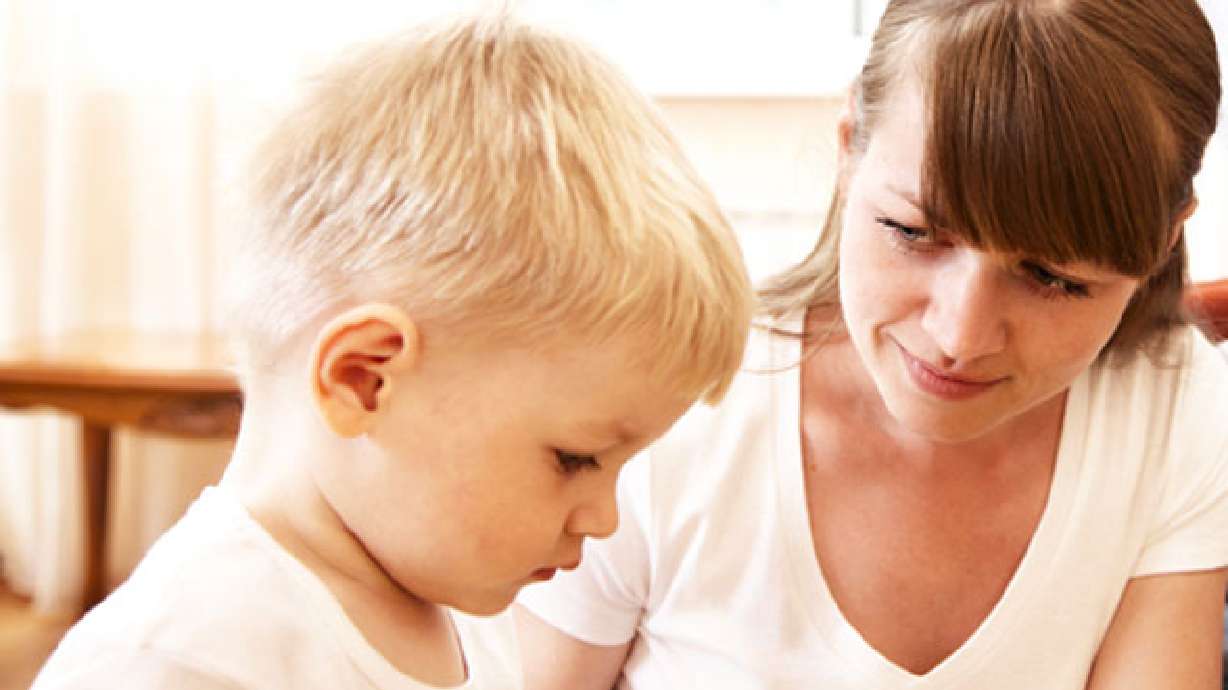Estimated read time: 3-4 minutes
This archived news story is available only for your personal, non-commercial use. Information in the story may be outdated or superseded by additional information. Reading or replaying the story in its archived form does not constitute a republication of the story.
SALT LAKE CITY — The other day, my 4-year-old son was asking me for something. I reminded him that he needs to say “please” when asking.
“I don’t like using that word,” was his response.
“Why not?” I asked. He had told me he didn’t like saying "please" before, and I figured it was simply a little act of defiance, or maybe he didn’t like having to remember to add on that extra word to his request. Either way, I figured he was trying to test me a little.
“It’s not a nice word,” he answered.
"Honey," I said gently, "(Please) actually is a nice word. That's why I always tell you to use it. ..."No it's not," he responded matter-of-factly.
Not a nice word? It never occurred to me that he might not want to use it because he actually misunderstood the word’s meaning.
“Honey,” I said gently, “It actually is a nice word. That’s why I always tell you to use it. People like it when people say please. It’s a polite, nice way to talk and ask for something.”
“No it’s not,” he responded matter-of-factly. It wasn’t a smart-alecky response, but sincere and contemplative, which left me even more perplexed.
He had never understood the meaning of the word please? How in the world had he come to that misunderstanding?
“What would make you think it’s not a nice word?” I asked.
“Because,” he said, a little frustrated I was being so slow to catch on, “You always say it when you are mad!”
What? I was totally taken by surprise.
Related:
Then I started hearing the echo of my own words in my head. Oftentimes, trying to avoid raising my voice, I lower it instead and will say something in a semi-stern tone like, “Please pick up that toy,” or “Please listen to me when I’m talking to you.” I quickly realized that when I do this, I almost always tack on the word please to the beginning of what I’m saying. Oh dear. My poor child thought please was a mean word all this time because of me! I felt so sheepish.
I then explained to my son about my mistake, and how please is, in fact, a good word.
Since then, we’ve mended that little misunderstanding. He says please and I try to remember that when I say please it needs to be used in the right tone and context.
I learned a few things from that experience:
- First, our kids really do listen to what we are saying. Sometimes it might not even be the actual words we are saying, but the tone in which we say them.
- Second, we need to be careful because the things we do can have unintended consequences we could never have anticipated.
- And third, make sure to always use “polite” words — like please and thank you — politely, or our kids could end up going around for the rest of their days thinking nice words are naughty.
Lindsay Ferguson is a Communication graduate from University of Utah. She is a wife and mother of two young children. She writes from home and keeps up a blog at lifeasamomuncut.blogspot.com.










